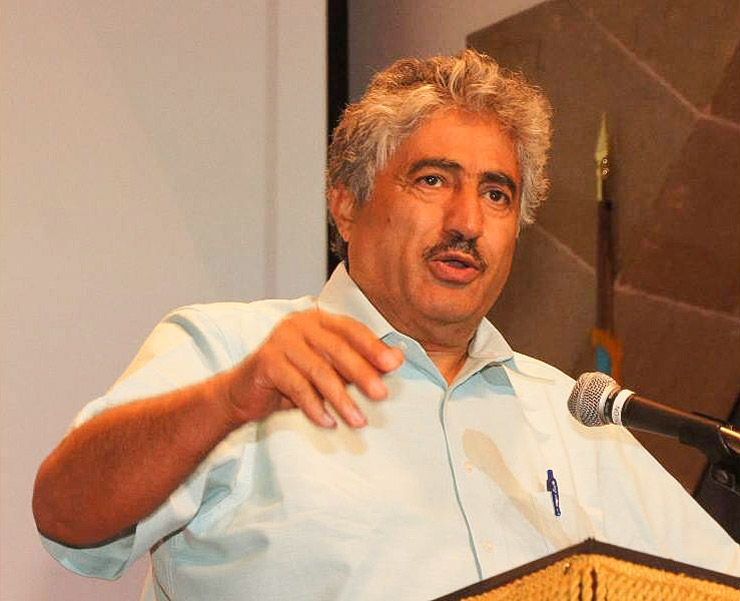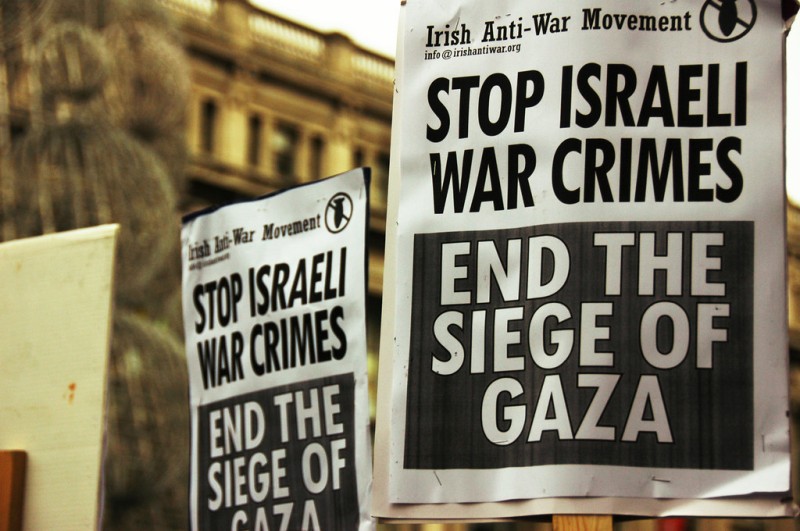1. For Israel, and its ardent supporters: The occupation has gone for far too long.
The excuses for failing to make peace have grown very thin, and are no longer believed by its own friends. For the foreseeable future Israel holds all the cards and must determine how it wishes to play them. It can no longer “hope for someone on the other side” to come forward. It controls Palestinians, their lives, their movement, and even their leadership. It holds levers over all aspects of their lives, and acts as sovereign and owner of the entire land, unrestrained by anything ( including international law, or the international community), and has successfully deflected all acts of resistance and all outside pressures. It still needs to determine, for its own purposes, at least, where it should go, and what it should do. The collapse of the moves for Palestinian statehood (celebrated by some) forces the issue of: what then? Do we rule over Palestinians forever, as non citizens? Can we accept in perpetuity that our Jewish state can only treat Palestinians as unequal in Israel, occupied in parts of the West Bank, totally besieged in Gaza, and permanently barred into exile for their diaspora? And if so, how do we “manage” this situation as a permanent state of affairs? How can we best deal with another people that we rule, but in accordance with our own ideals? Palestinians are going nowhere, so how we deal with them (sans excuses) as part of who we are or have become.
2. For Palestinians:
As hopes for a genuine independent state collapse, and the one-state solution appears even farther away, how do we struggle for our rights and dignity, and build for ourselves and our children a better future? Submission to the existing injustice is not an option. Can we find methods that are effective and goals that are achievable? Surely violence has not served us well, and is not likely to succeed against enemies who are immeasurably more powerful, better armed and organized, strategically and tactically dominant in the battlefield (and paranoid to boot). We cannot expect either the Arab world or the outside world to save us. What else can we do? Can a more assertive and better-planned and organized non-violent campaign of resistance serve us better?
3. For third parties, who are concerned about peace and justice, and who perhaps care both for Israelis and Palestinians:
Is there a path to actively be supportive of both, and work for human rights and dignity, in light of the overwhelmingly-depressive political prognosis? Despairing of an “ultimate solution,” are there interim measures we can support or work for?
To all the above, there are answers, options, and paths for action that may not lay out “THE SOLUTION” but can be worthwhile effective steps in the right direction. None of them are easy or cost free, or are guaranteed to “solve” the problem, but each can be pursued without either demanding or ruling out a political solution in the future:
1. Abandonment of the siege of Gaza, and allowing freedom of people and goods into and out of the Strip.
The siege, initially undertaken as a political move to punish Gazans for their support of Hamas, and to prevent continuity between the West Bank and Gaza as a measure to fragment Palestinians and to prevent Palestinian statehood, cannot be a permanent feature of life. With due consideration for the desire to prevent weapons from entering Gaza (a failed exercise in all cases), draconian controls over the civilian life and economy of two million souls in the Gaza Strip cannot be a permanent state of affairs. It must end. Whatever puny efforts some in Gaza may undertake to militarily resist are strategically insignificant, and in any case, cannot be completely deterred by force alone. But given the relative quiet (from Gaza’s side), the siege must be lifted. This is something all parties must work on now.
2. Abandonment of armed resistance by Palestinians. Armed struggle is never an end in and of itself.
It is only a method for achieving political ends, which seem to be elusive now. However deeply oppressed, and however justly provoked Palestinians are, armed resistance cannot help them in their present situation. No political or national goal can be advanced by acts of desperation, especially if aimed at the civilian “softer targets,” and they are definitely bound to be counterproductive. The issue is not legitimacy of armed resistance, but its efficacy. Palestinians will do well (from their own perspective) to suspend any such actions. The emotional rush or satisfaction of “doing something” or “making the other side suffer” is not reason enough to do things that are counterproductive to our cause. By the same token, Israeli continued reliance on the army and deadly force has also proven ineffective, and “deterrence” has not worked. New thinking is required by Israelis as to the efficacy of reliance on military power as well.
3. Struggle against collective punishment, and administrative measures.
Many of the forms of control used by Israel against Palestinians attempt to fashion the behavior of the entire Palestinian community by punishing members of that community and rendering them all subject to the arbitrary acts of Israel. Such actions contravene international law, common morality, and basic human decency. Some would say they also contravene the character and morality of Judaism and of the nature of society Jews wish to have for Israel. Such measures may find some justification in times of crisis, but they cannot serve as a permanent feature of any people’s existence. If Israel wishes to “manage” this population, it must realize that neither occupation nor apartheid have permanency. Just as slavery and colonialism eventually had to be abolished, so will this injustice.
* * * * *
If Israel is going to insist, for the foreseeable future, on being in charge of Palestinian lives and affairs, and deny them statehood, it must find a way to provide them a minimum of normalcy by lifting the measures which subjugate them to arbitrary actions.
It must give them a role in deciding their own affairs, both in the West Bank (including areas C), in Gaza, and in Israel. A large number of measures do exist which are totally within Israel’s control and can be undertaken unilaterally, with minimal impact on the ultimate security picture. They do not require Palestinian “agreement,” and they do not determine a particular ultimate political solution. Israel should seriously consider implementing them unilaterally rather than keep them as “potential bargaining chips” in negotiations over a solution that does not appear on the horizon in the foreseeable future. These include:
1. Ending all administrative detentions, and releasing administrative detainees.
2. Removing all restrictions on normal movement of goods and services between the West Bank and Israel, as well as between Gaza and the West Bank.
Specific individuals may still be prevented from movement into Israel by court decree, upon good cause, but the blanket prohibitions must be lifted, especially with respect to access to East Jerusalem. This has actually been tried a number of times, with good results. The continued restrictions have a merely political and not a security basis.
3. Removing all barriers, checkpoints, and obstructions within the West Bank, allowing freedom of movement for goods and persons.
These restrictions currently hamper economic development, create daily humiliations, and bedevilment, and their contribution to Israel’s security is negligible, while their impact on the lives of Palestinians and their contribution to increasing hatred and enmity is enormous.
4. Granting Palestinians permission to build in Area C of the West Bank and turning over zoning and planning authority in those areas to them.
5. Creating new legislative and constitutional guarantees for equality in Israel itself, and making the promise of equality in Israel’s Declaration of Independence operational and binding.
6. Making all residents of the West Bank, including Jewish settlers, subject to the same laws, administered by civilian and not military courts.
This measure does not need Palestinian approval. Those Jewish settlers who wish to continue to live illegally in the West Bank, for whatever reason, must be required as a minimum to pay the price of living in equality with Palestinians in that area. This could take the form of extending certain Israeli privileges to West Bank Palestinians or alleviating certain burdens, which would be intolerable to Jewish settlers, from the Arab population. Either way, it would promote equality without prejudicing Israeli security or the eventual political outcome.
* * * * *
It may be argued that all these suggestions only beautify and prolong the occupation rather than remove it. My answer is that each and every one of these suggestions can be pursued without abandoning one’s own political beliefs or one’s own struggle for the ultimate political outcome. Yet they also address the current intolerable situation which has been bedeviling the local population for half a century while pretending to be temporary.








